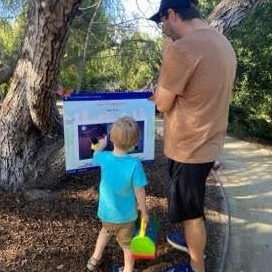The current treatment model for addictive behaviours involves treating people based on the substance or behaviour they are dependent on; however, there are usually underlying psychological reasons for their addictions that might not go away (i.e. treating someone for alcoholism who drinks due to an earlier trauma doesn’t remove the injury of the underlying trauma). The solution is to ‘focus on underlying drivers, not surface symptoms of problematic behaviours’. Rather than assessing and focusing on a diagnostic “what”, Professor Yücel and BrainPark are focusing on the “why”.
Our uptake of new technologies and electronics comes at a cost: information and communications technology (ICT) consumes about 8% of global electricity, doubling every decade. A massive amount of energy is consumed in the thousands of factory-sized data centres that house “the cloud,” as well as computer systems for telecommunication and storage. Most of the energy consumed in data centres, computers and other devices is dissipated as heat rather than being used to power the device itself, meaning that much of it is wasted. ICT is now on par with the aviation industry for their contribution to global warming, and it’s time for a change.
The month of May is our peak awards season at the Royal Society of Victoria, with all three major programs open for submissions at once, each recognising excellence at different moments of the science career cycle. Please consider the talented scientists in your life, and encourage (or prepare) a submission for the Young Scientists Research Prizes, the Phillip Law Postdoctoral Award for the Physical Sciences, and the RSV Medal for Excellence in Scientific Research.
The pressure to apply science to professional sport has accelerated, and there is more data being generated in sport than ever before. With better tools to manage and detect that data, the technology and analysis behind professional and recreational sport will continue to improve, giving players the opportunity to improve alongside them. Associate Professor Sam Robertson and Professor Damian Farrow are dedicated to advancing technologies, data capacities, and analytics to help both professional and recreational athletes.
How can textiles quietly heal us? Are wearable medical devices of any use when patients are too stigmatised to wear them? What good is fancy cycling gear that won’t protect the rider? Can we close the loop on global fashion, the world’s second biggest polluting industry? From comfort and style to function and protection, clothing fulfils some of the most basic human needs; but now we’re exploring textiles that can contribute to wound healing, or even become body implants through a next generation recycling process.






